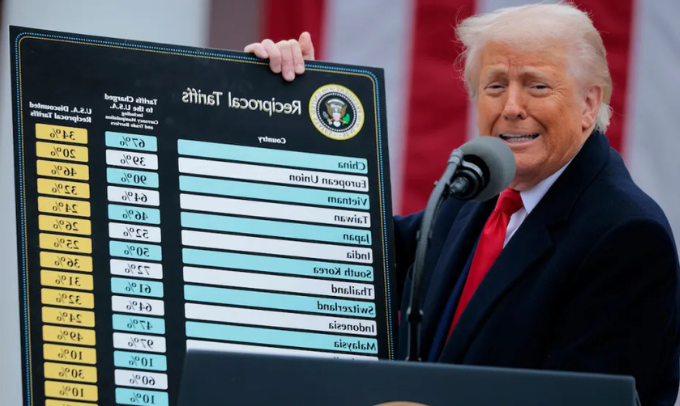US , Apr 11, 2025
President Donald Trump’s shifting tariff policies on electronics and other goods have created significant uncertainty in both U.S. markets and international trade relations. The fluctuating tariff rates and the unpredictability surrounding future trade policies have left businesses and investors uncertain about how to navigate the global economic landscape.
The Impact of Tariff Shifts
During his time in office, President Trump imposed tariffs on a wide range of products, most notably on electronics and technology goods from China. These tariffs were part of his “America First” trade agenda, aiming to reduce the U.S. trade deficit and protect American manufacturing. However, the frequent changes in tariff policies and the lack of long-term stability have raised concerns among U.S. businesses.
The electronics sector, which is heavily dependent on international supply chains, has been particularly affected. Companies that import goods from China and other countries have faced higher costs due to tariffs, impacting everything from consumer electronics to industrial equipment. This uncertainty has made it difficult for businesses to plan for the future, as they are unsure whether tariffs will increase or decrease in the coming months.
Consequences for Global Trade Relations
The unpredictability of the U.S. tariff policies has not only affected domestic businesses but has also strained trade relations with key global partners. Countries like China, Canada, and Mexico have retaliated with their own tariffs, escalating tensions and potentially triggering a trade war. As these tariffs continue to shift, businesses operating internationally are facing a more volatile environment, making long-term contracts and supply chain decisions more complicated.
This trade uncertainty has extended beyond electronics, impacting industries such as agriculture, manufacturing, and automotive. The fear of retaliatory tariffs and trade disruptions has led to concerns about global economic slowdowns.
Long-Term Effects on U.S. Markets
In the long term, the market uncertainty created by shifting tariff policies could have serious implications for U.S. economic growth. While some industries have benefitted from the protectionist policies, others have seen their costs rise, potentially leading to price hikes for consumers. This has made it more difficult for investors to predict market trends, increasing the risk associated with U.S. equities and bonds.
The trade war with China has also affected global supply chains, with businesses looking for alternative sourcing options to avoid the impact of tariffs. However, the lack of a clear resolution in the trade dispute continues to make global markets volatile.
The Road Ahead
As President Trump’s term comes to an end, questions remain about whether the next administration will continue the protectionist approach or seek to negotiate new trade agreements. The outcome will be critical for U.S. businesses, investors, and global trade relations.













